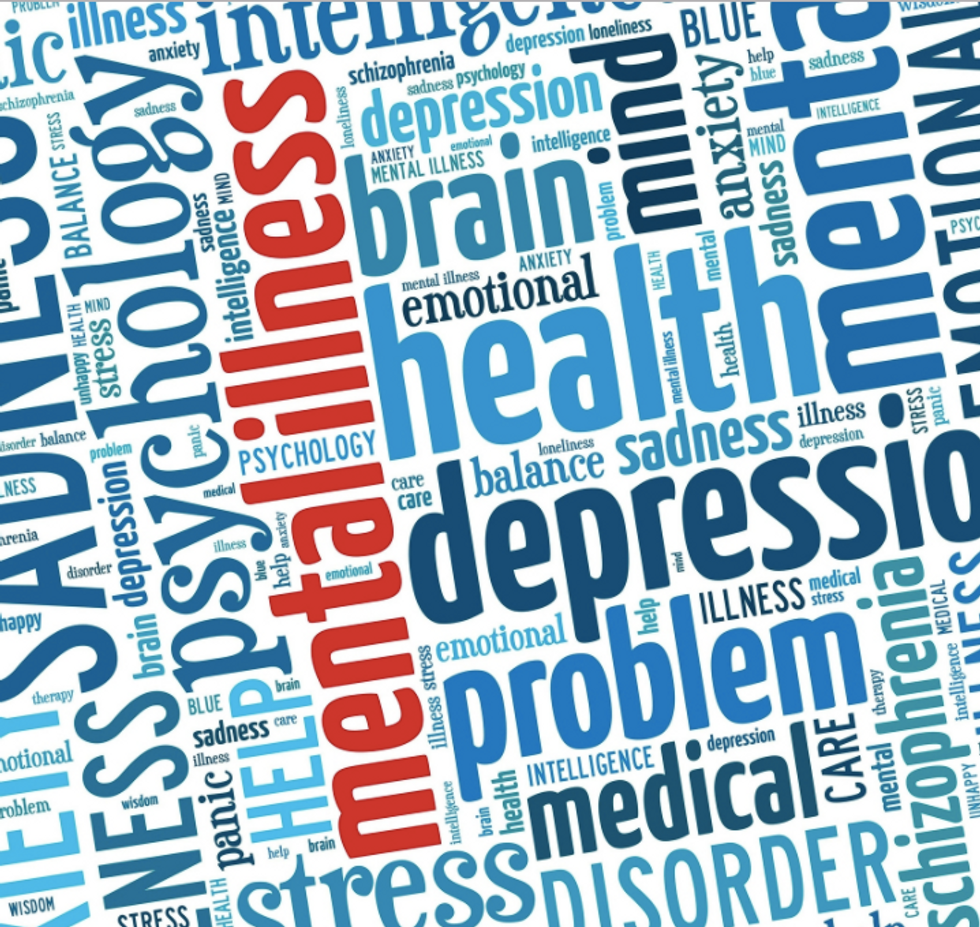The heartbreaking but undeniable truth is that we have all been affected by mental illness. Be it a family member, a relative, a significant other or an old acquaintance, somebody we know has battled one of the countless paralyzing illnesses that exist. And with invisible illnesses, those in which we cannot see externally, the blanket of stigma, reproach and indignity smother those who suffer.
Society tells us every single day that we're not pretty enough, not skinny enough, or not rich enough. It has created too many unrealistic expectations that are impossible to meet. We are ruthless when it comes to how we view each other, and moreover, how we view ourselves. Society has painted a distorted image of perfection, making us terribly afraid of judgement, labels and people's perceptions of us. We are so concerned with the face which we put forward for the world to see that we forget about what truly matters in life. They tell us if we are prettier, skinnier and richer that we will be happier. But that is nothing more than an illusion that so many of us get caught up in. Happiness is about surrounding yourself with those you love and those who love you, creating a life filled with passion and adventure, and simply enjoying the ride.
I am no expert, and not claiming to be one, but I believe that the root of many mental illnesses are the feelings of severe anguish that intensify when failing to meet these quixotic standards and expectations. And in combination, having an environment of people with closed minds instead of open arms. The fear of societal judgment and humiliation stops so many people from seeking help. We often forget to filter our thoughts and conversations and in order for people to feel comfortable sharing the struggles they face, we must first provide them with a space free of judgment, criticism or appraisal to do so. You don't know what people are going through and you cannot assume that everybody is simply okay because their Facebook status says "feeling happy" and their Instagram page shows a bright smile. I think we are all guilty of reenforcing a judgmental society through our overuse of social media and things as mindless as our every day conversations.
According to the National Alliance of Mental Illness:
-Approximately 1 in 5 adults in the U.S.A (43.8 million) experience mental illness in a given year.
-Approximately 1 in 5 youth, aged 13-18 (21.4% of population) experiences a severe mental disorder.
Perhaps in that astonishing 43.8 million adults, or 21.4% of the youth population, you know somebody? We have created countless stereotypical assumptions of illnesses and people who suffer from them. If you were to think about bulimia, depression or anxiety, what does that look like to you? What is the picture that comes to mind? A person, a set of behaviors, a character in a reality tv show? Whatever that preconceived notion is, I ask you to take a moment and ask yourself, "would I have more understanding and acceptance if it were somebody I knew? Would I talk about that disorder in the same way? Would I be more mindful of my word choice when talking about mental illness, knowing that someone I love was suffering?"
If you answered yes, then I can reasonably assume that you too fall into the trap of being judgmental, mindless in your conversations and jump to conclusions about specific illnesses or people who have them.
If you are currently in the ring with mental illness and fighting those battles- KEEP GOING. The people who you love and those who love you will support you. I encourage you to share your story, because you may be the light at the end of the tunnel for somebody else. And you may also find happiness in letting your true self come forth. Hiding the truth will only result in more suffering. We all are very good at putting out a front for the world to see, our "best self" you might say, and that makes it hard for others to understand what is underneath. But if we all can work towards spreading the message of honesty and understanding, then we can surely work towards ending the stigma, letting the silence be broken and creating an environment where the invisible becomes visible.
Let us not judge others for their struggles, whatever they may be, and may we be consciously mindful with our opinions and conversations. We must first open our minds, open our hearts and open our arms to others. The more understanding we can be, not just with issues of mental health, but with all aspects of our life, the more we can help alleviate the stigma, stereotypes, false notions and misconceptions about mental health.
Mental health should not be kept a secret. It should not be something to be embarrassed by. If you are struggling, you aren't the only one. Just because mental health is invisible doesn't mean it's not serious and an incredibly hard battle. So if you can't see it with your eyes, see it with your heart and create an environment where people who are struggling are comfortable sharing their stories.
As Dr. Suess once said, "Be who you are and say what you feel, because those who mind don't matter and those who matter don't mind."






















